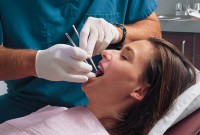
Big Pharma is jumping on the immunotherapy band wagon. According to Bloomberg.com, major drug companies are poised to introduce a new generation of experimental cancer drugs that use the immune system to target and destroy tumor cells. Big Pharma may be putting a new twist on immunotherapy, but the treatment philosophy is hardly new. Alternative cancer treatment centers were early to recognize the importance the human immune system plays in fighting cancer. Immune-boosting cancer vaccines and integrative immunotherapy have been cornerstones of Issels Integrative Oncology treatment protocols for 60 years.
Motivated by billions of dollars in potential drug sales, drug companies are waiting for study results scheduled for presentation at the annual meeting of the American Society of Clinical Oncology at the end of May before launching new drugs.
[Immunotherapy] “is going to be a paradigm shift for treating cancer. We are pretty good at shrinking tumors but not good at getting rid of them. Immune therapy is a way to begin to approach that,” Merck VP Gary Gilliland told Bloomberg.
Drug makers estimate it will take a year to determine the effectiveness of new immunotherapy drugs to increase cancer survival rates and extend lives. Bloomberg notes “the strategy offers scientists the first major new avenue for attacking cancer in a decade.”
Rather than waiting for Big Pharma to complete its testing, we’d like to recommend that people with cancer review the patient testimonials on our website. We’ve been using immunotherapy to fight cancer for more than 60 years and many of our patients have enjoyed complete long-term cancer remissions. Visit our website to hear what they have to say.





